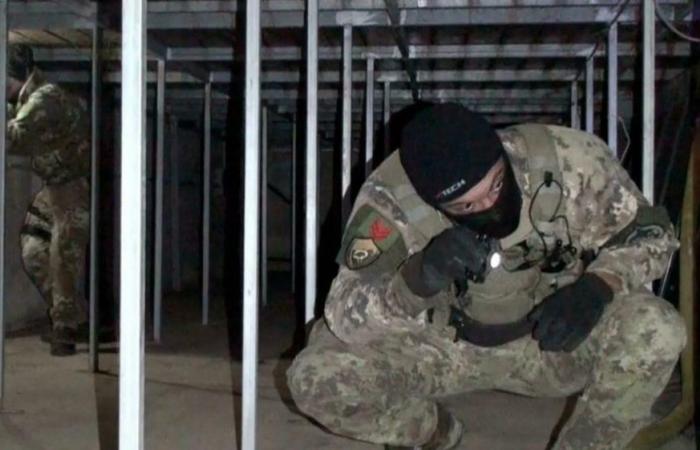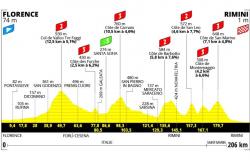A Puglia balkanized come on clan and in which there is no shortage of feuds for the hegemony over territories. And while the mafias of the heel of Italy diversify their interests, however they continue to do business above all by capitalizing on the proceeds of the core business represented by drug dealing and drug trafficking, i.e. the wholesale and retail sale of drugs. This is the overview that emerges from the latest half-yearly report of Dia transmitted to parliament by Minister of the Interior, Matteo Piantedosi. The dossier photographs the time span from January to June 2023. In 376 pages it reviews the state of the art of the anti-mafia investigative directorate’s work on organized crime in Italy.
The dossier on Puglia
Looking at Puglia, the clans aim to expand both by jostling to expand their dominion over the territory beyond regional borders and by forming alliances with other criminal groups, including foreign ones. «The control of the territory is confirmed as an essential element of the Apulian mafia associations, as a source of growth and sustenance, ensured with extortion, theft and robberies perpetrated in some cases even by minors. The historical alliances with other criminal organizations, including foreign ones, are accompanied by a constant tendency towards the expansion of the territories controlled by the clans, even outside the regional areas”, we read in the report which updates the mafia rate. The main area of action is everything that revolves around drug trafficking, but the search for a leap in quality continues within the gray zone where pieces of entrepreneurship and clans meet. «Apulian organized crime has developed over time an ability to act in relevant economic contexts, polluting the legal economy through the laundering of illicit proceeds», explains Dia. Infiltration not only in the economy but also in the institutions, given that Puglia is third (after Sicily and Calabria) in terms of the number of municipalities dissolved due to the mafia. To undermine the fortress of the criminal organizations, in addition to the constant pressure of the counteraction of the police forces and the judiciary, “there is certainly the increase in the number of justice collaborators, a phenomenon which has mainly concerned the Bari groups”. Then ambushes and murders continue: with the shedding of blood the clans settle scores but above all they impose themselves on the territory. «The Apulian criminal context – the report reiterates – still remains unstable also due to continuous internal rifts. Multiple ambushes occurred in no particular order throughout Puglia, confirming the fight for control of the territory.”
The Apulian criminal context is historically divided into three cases: the Bari Camorra, the Foggia mafias and the Scu, the Sacra Corona Unita which has its roots and branches in Salento. «Criminal organizations, mostly autonomous, characterized – underlines the Dia – by an accentuated dynamism resulting from the fluctuating relationships of conflict and internal alliances, and which however, when necessary, carry out forms of strategic collaboration between themselves functional to the satisfaction of profitable and common interests illicit”. Drug trafficking (in addition to smuggling, extortion, usury and illicit betting) is also confirmed as the main interest of the gangs of the Bari capital which, through increasingly complex forms of money laundering, are proving capable of insinuating themselves into the healthy economic fabric, also making use of compliant professionals and sometimes infiltrating the institutional apparatus. The Bat, however, is rapidly emerging as a strategic crossroads and the criminal organizations have been favored by the consolidated relationships with the Albanian associations established along the Adriatic route.
Organized crime in Foggia, the so-called fourth mafia, continues to present itself as a historically rooted phenomenon in a heterogeneous way with a plurality of distinct identities (the Foggia society, the Gargano mafia, the Alto Tavoliere mafia and the Cerignola underworld) and profiles of marked danger. Also relevant is the central role assumed by the Foggia mafias in the drug trafficking sector (also thanks to extra-regional connections with Campania and Calabrian crime, as well as with Albanian groups) which also favors projections outside the region, especially in Molise (coastal and inland of Campobasso ) and in Abruzzo. The Scu continues to express its criminal capacity in the provinces of Lecce, Brindisi and Taranto. The greatest resources in the clan coffers come from the drug market but also, although submerged, from the phenomenon of extortion. At a strategic level, an international propensity of the Apulian associations emerges which manifests itself in the ability to forge relationships with the major foreign drug traffickers to activate new supply channels for drug loads.
© ALL RIGHTS RESERVED
Read the full article at
Puglia Newspaper






